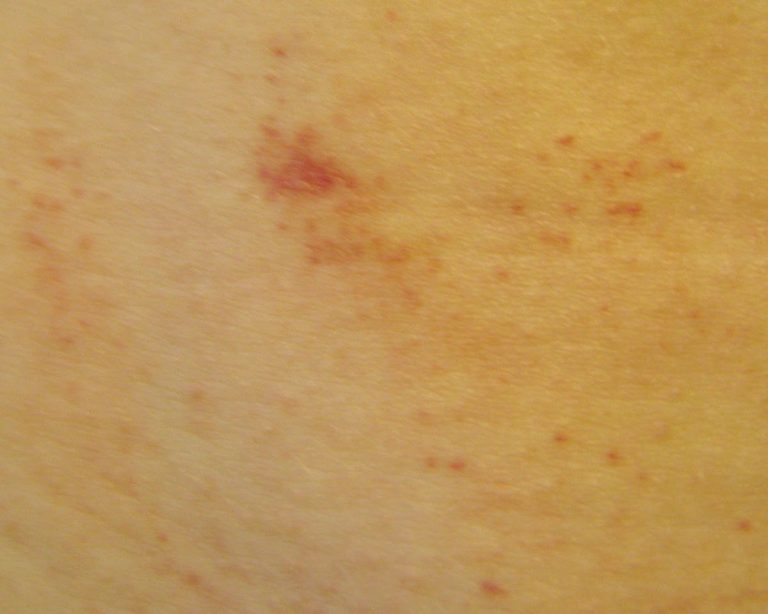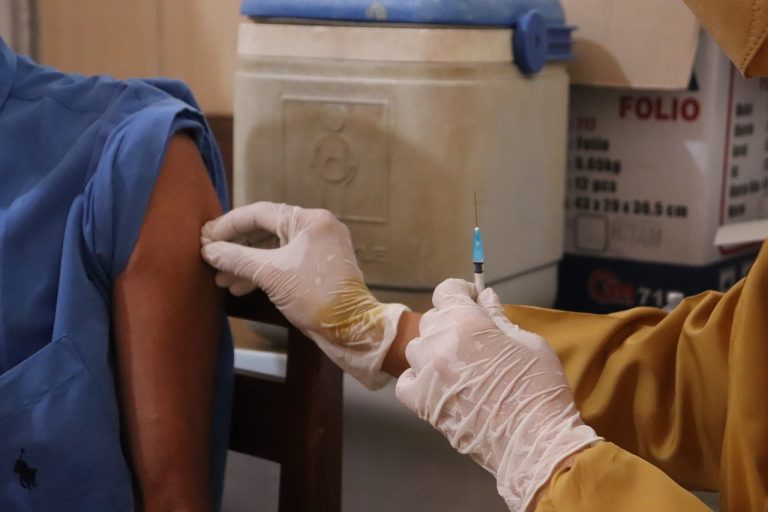Scientists have reported at least 14 cases of the blood condition thrombocytopenia, an abnormally low platelet count, in Coronavirus Disease 2019 (COVID-19) vaccine recipients.
Platelets usually function to stick together to stop bleeding in damaged blood vessels. Low platelet counts can predispose patients to mild to severe bleeding inside the body or under the skin. If severe bleeding occurs in the brain, thrombocytopenia can be fatal.
While governments worldwide tout vaccines as a key to returning to normalcy, the serious adverse events, novel coronavirus mutants, and unknowns about coronavirus vaccines continue to raise concerns.
A growing list of COVID-19 vaccine adverse events
As of Feb. 12, over 162 million vaccine doses have been administered worldwide, and about 46.4 million vaccine doses have been administered in the U.S., according to the Centers for Disease Control and Prevention (CDC) COVID Data Tracker.
Success
You are now signed up for our newsletter
Success
Check your email to complete sign up
The U.S. Department of Health & Human Services (HHS) Vaccine Adverse Event Reporting System (VAERS) data contains reports filed by medical professionals, patients, and family members that can help identify “unusual or unexpected patterns,” but do not explicitly detect if a vaccine caused an adverse event.
An OpenVAERS project based on VAERS HHS data last updated on Feb. 12, containing 12,697 reports processed as of Feb. 5, reports 653 deaths, 1382 hospitalizations, 2792 urgent care visits, 1654 office visits, 154 cases of anaphylaxis, and 145 cases of Bell’s palsy.
There have been 39 cases of decreased platelet counts, 14 cases of thrombocytopenia, 12 cases of immune thrombocytopenia, and 24 cases of purple, red, or brown skin spots from bleeding known as petechiae or purpura.
The vast majority of these reports are based on Pfizer-BioNTech and Moderna vaccines administered in the U.S., but some reports are from foreign countries where these two vaccines were given.

Covid-19 vaccine recipients experience bleeding events
Luz Legaspi, 72, awoke the day after receiving the first dose of the Moderna COVID-19 vaccine with bruises scattered along her arms and legs, as well as bleeding blisters in her mouth. On Jan. 19, she was hospitalized in New York City and found to have severe immune thrombocytopenia with a lack of platelets.
Similarly, Dr. Gregory Michael started to display idiopathic thrombocytopenic purpura (ITP) symptoms, such as petechiae on his feet and hands three days after receiving a dose of the Pfizer-BioNTech vaccine in January. Michael was a 56-year-old obstetrician in Miami Beach.
Heidi Neckelmann, Michael’s wife, posted on Facebook, “He was a very healthy 56-year-old, loved by everyone in the community.” After noticing petechiae on his body and going to the emergency room at Mount Sinai Medical Center (MSMC), he was admitted to the intensive care unit (ICU) with acute ITP… A team of expert doctors tried for 2 weeks to raise his platelet count to no avail.” She recalls that “2 days before the last resort surgery, he got a hemorrhagic stroke caused by the lack of platelets that took his life in a matter of minutes.”
Michael was happy to receive the vaccine as a pro-vaccine advocate, but Heidi states:
“I believe that people should be aware that side effects can happen… in this case [the side effect] destroyed a beautiful life, a perfect family, and has affected so many people in the community.” She ended with a plea to the public: “Do not let his death be in vain, please save more lives by making this information news.”

Do COVID-19 vaccines cause thrombocytopenia?
Pfizer told The New York Times that “at this time, we have not been able to establish a causal association with our vaccine” and that it was collecting pertinent information to pass on to the Food and Drug Administration (FDA).
In an email to The Epoch Times, a Pfizer official elaborated:
“We take reports of adverse events very seriously. We are aware of thrombocytopenia cases in recipients of our COVID-19 vaccine as reported to the VAERS… and/or reported to Pfizer. To date, millions of people have been vaccinated… Serious adverse events, including deaths that are unrelated to the vaccine, are unfortunately likely to occur at a similar rate as they would in the general population.”
Health experts have also offered their viewpoints. Despite not evaluating Michael or knowing his medical history, Dr. Jerry Spivak, professor of medicine in the Hematology Division at the Johns Hopkins University School of Medicine in Maryland, weighed in on the issue through an email to The Epoch Times:
“However, based on the rapid onset, severity, and the similar time course of thrombocytopenia in several other patients within the same period, exposed to the same vaccine and all being men… the association [with the vaccine] has to be considered real, as opposed to coincidental. Vaccine-induced thrombocytopenia is a recognized rare event, but no one should die from it. Dismissing this event as coincidental or merely possible does an injustice to Dr. Michael, scientific inquiry, and harm to others who may experience the same adverse event. So, yes, until proven otherwise, I consider this a COVID-19 linked event,” said Spivak.
Dr. Spivak has been vaccinated himself and still recommends the COVID-19 vaccine to others because he believes the benefits outweigh the risks.
Concerning Michael’s case, Dr. Paul Offit, vaccine and infectious disease expert at the Children’s Hospital of Philadelphia, stated, “I don’t know what this is. We’ll keep our eyes open and see if it happens to anybody else.” He added, “Right now, we’re guessing. It’s an association in time, but not necessarily a causal association.”
As federal authorities continue to investigate whether severe adverse events and rare thrombocytopenia cases are related to COVID-19 vaccines, vaccine recipients should not hesitate to contact medical professionals with questions if symptoms arise. Specific symptoms related to a low platelet count may include easy bruising, red skin spots, bleeding from the gums or nose, and blood in the urine or stool.
Follow us onTwitter or subscribe to our email list













